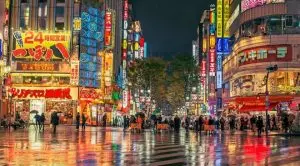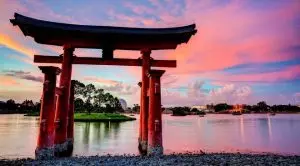 Local gambling experts have shared their concerns regarding the plans of large US companies to pursue an operating license in Osaka.
Local gambling experts have shared their concerns regarding the plans of large US companies to pursue an operating license in Osaka.
A group focused on raising Japanese citizens’ awareness of gambling addiction headed by Noriko Tanaka has been trying to make people more cautious when it comes to gambling. The Japanese parliament lifted the casino ban back in 2016 and has recently passed a bill to set rules on how these casinos should be run.
The local lawmakers have dropped the country’s long-time resistance to casino gambling, with Japan being focused on attracting more visitors with an industry which could rival the ones of Las Vegas and Macau, despite the fact certain claims have emerged that they will create a new generation of gambling addicts. The country has also been seeking to get some fresh money amid evidence that its casino industry would be able to generate massive tax revenue. In addition, according to industry analysts, the move of the Japanese lawmakers would create many new jobs and bring further growth to the regions outside Tokyo.
Some experts warned that the industry must be engaged in working in collaboration with the authorities in order to prevent gambling-related harm from spreading across the country. They also said that more details must be given in terms of the funding which would be provided and how it would be spent. The anti-gambling campaigners further reminded that the Japanese public was against casino expansion, citing a recent poll carried out by Kyodo news agency, according to which only 26% of the local citizens favoured the casino legalisation, and 65% being against it.
The Government Rolls Out Measures to Tackle Problem Gambling
 The growing popularity of Japan as a tourist destination has attracted some of the leading global gambling operators’ attention, including MGM Resorts and Las Vegas Sands, both of which have said they were willing to make investments of about $10 billion in an integrated casino resort situated in Osaka.
The growing popularity of Japan as a tourist destination has attracted some of the leading global gambling operators’ attention, including MGM Resorts and Las Vegas Sands, both of which have said they were willing to make investments of about $10 billion in an integrated casino resort situated in Osaka.
According to experts’ estimates, the Japanese casino industry could contribute to the local economy with a tax revenue of $18 billion to $32 billion on an annual basis. As previously reported by Casino Guardian, the ruling coalition has reached an agreement to build three casino resorts in the country, with their number to be reconsidered at a later point. For the time being, the Japanese casino will be established only as part of so-called “integrated resorts” – large complexes that include hotels and entertainment venues, dining areas, shops, conference rooms and event spaces.
Despite the fact that the local Government has revealed that it would take the necessary steps to tackle problem gambling in the country and deal not only with gambling-related harm but also with organised crime related to gambling, anti-gambling campaigners have criticised the lawmakers, saying that the new casino resort bill has failed to address the spreading number of gambling addiction.
According to a government survey dated 2017, approximately 3.2 million Japanese people have been facing the consequences of problem gambling behaviour, with most of them being hooked on pachinko, lotteries, football pools and various government-organised races.
Apart from setting some rules related to the operation of casinos as part of the integrated resorts, the proposed bill which is waiting for final approval has set some limits for Japanese players. Local people will be allowed to visit a casino maximum three times a week or ten times monthly, with a casino entrance fee of ¥6,000 to be charged. According to experts, the law needs to make sure that the casino gambling industry would cooperate with the authorities to tackle gambling addiction.
- Author


